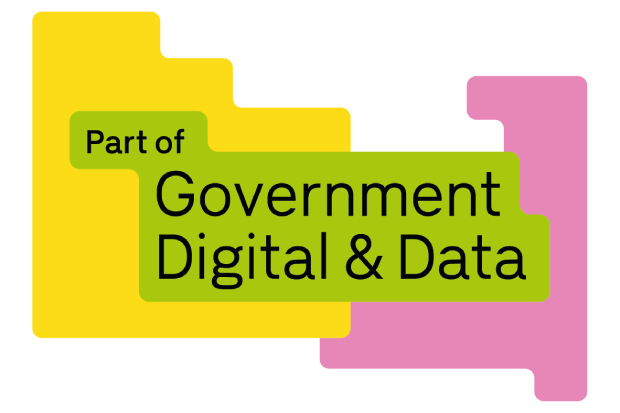
Through the Global Digital Marketplace Programme, GDS is helping tackle global corruption. We do this by working with international governments to make their procurement more transparent and boost their digital, data and technology sectors. This work builds on the success and expertise we’ve gained through the Digital Marketplace and other UK-based work, such as the Technology Code of Practice, spend controls and Service Standard assessments.
We’re working with national and regional governments in South Africa, Mexico, Colombia, Indonesia and Malaysia. We’ve just completed our discovery phase, during which we researched the digital procurement landscape in those countries. We’re now in the process of defining what our alpha phase will look like. And we’re co-designing it with our partners in the 5 countries. The end goal is to tackle corruption across these countries.
Doing research across 5 countries at the same time, within the space of 7 months, is no easy feat. We previously blogged about how we commissioned 5 UK small and medium-sized enterprises (SMEs) to help us to do the research across the different areas of digital procurement.
What we learned in discovery
Not surprisingly, the procurement landscape in each country we visited is unique, with specific opportunities and challenges. At the same time, we found common threads across countries which are likely to strongly influence the programme’s focus in the next phase.
There’s tremendous enthusiasm for fighting corruption and pressure to deliver real change in our partner countries. This suggests the timing is good for the programme’s work, and that our alpha activities will have the best possible chance of gaining traction.
We also found that while most countries have traditional 'e-procurement' systems, few of them deliver the expected benefits. Generally, this is because the systems don’t meet user needs, and the underlying cause is issues with digital capability. In alpha, we’ll look to help our partners develop strategies to address this.
Other issues we found include lots of unpublished and unstructured procurement and contract data, a lack of formalised processes to control spend and to assure delivery of digital services, and a supplier market concentrated among a few large companies.
Next up: building our roadmap
Since returning from our discovery missions, we’ve focused on turning what we learned about procurement in each country into a series of propositions for the alpha stage. These propositions are our ideas for the problems we’d like to solve and what we’d like to test, which we think would be useful to our partners – the national and regional governments – their digital, data and technology sectors, and their citizens.
We’re now returning to each country to discuss these propositions, and develop the strongest ones into a range of alpha projects. From this, we’ll build our rolling 12-month roadmap.
We can’t do it alone
It’s likely that UK suppliers will play an important part in delivering our roadmap. We’ll look to bring in expertise through the Digital Marketplace for different types of work.
We want to co-deliver exemplar projects with local country teams, and we want to support them with our user research, service design and agile working skills and experience. We’ll also look to bring a user-centred approach to procurement practice by working with users to design new routes to market or simpler procurement documents.
We’re hoping to further develop the ICT Commissioning Playbook into a beta product. And we want to co-design capability and training strategies with our in-country partners.
Working with overseas governments brings different opportunities and challenges. We’ve reflected below on some of the differences potential suppliers might consider when deciding whether to bid.
The challenges and opportunities of working together
The work on the Global Digital Marketplace Programme is unique and very interesting. It has a large potential impact, given the size and specific situations of the countries involved. One of the unique challenges, however, is the travel. People may be traveling long distances and to different time zones, and they may often be away from home. There have been instances where teams were asked to adapt plans and travel at short notice.
There’s also a need for sensitivity and contextual awareness, to adapt UK working approaches to different cultures and practices. It is important for all our suppliers to operate in line with the Government Commercial Function’s Supplier Code of Conduct while representing the programme. This includes the expectation of operating in a manner compatible with public service values, upholding the reputation of government, and promoting innovation and expertise.
In the discovery phase we worked with 5 different suppliers – each of them working towards a distinct outcome – rather than working with a single supplier. It is likely that we will continue to take that approach. Working alongside other suppliers also engaged in the alpha phase will require openness, collaboration and adaptability to make this approach a success for all parties involved.
Find out more
Last week, we held a pre-procurement market engagement event with interested suppliers. The event was part of our ongoing engagement with UK suppliers in the Global Digital Marketplace Programme.
You can see the slides and read the questions and answers that came up during the event.
Look out for Global Digital Marketplace Programme opportunities on the Digital Marketplace.


2 comments
Comment by Charles Symons posted on
‘Reform of public procurement and contracting’ is certainly ‘the number one corruption risk because it’s where money, opacity, and government discretion collide’. (Gavin Hayman, executive director of the Open Contracting Partnership,) And clearly ‘user-centred, design-led, data-driven and open approaches’ help combat corruption and are a good thing anyway,
But unless you can objectively measure the price/performance of bids and the actual outcome for any supply team, you will never properly control value-for-money, let alone succeed in combating corruption. So where in the ‘Spend Controls’ or any other Cabinet Office or GDS document are there any rules about how and when to measure price/performance?
Some Governments, e.g. Brazil, Italy, Mexico and Poland are doing this to ensure value-for-money and/or to combat corruption. And the Chinese are investing in automated measurement of the size of requirements so that they can control price/performance to help combat corruption. Many large corporations routinely measure price/performance of their suppliers and use the data to help evaluate bids and to drive improvements in the performance of suppliers.
UK Government polices no longer seem to require any objective measurement of value-for-money for taxpayers. No-one pretends this is easy, of course, but I suggest you talk to HMRC, who at least have experience and are thinking about how to adapt their experience to an Agile, multi-layer world.
Comment by Chris Moore MBE posted on
What is GDS doing to ensure that products in the marketplace meet WCAG 2.1 AA to give departments assurance that they meet public sector body accessibility regulations?